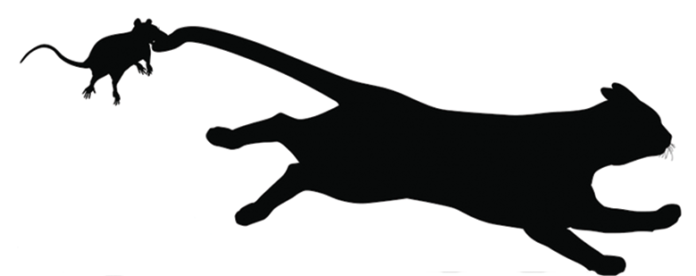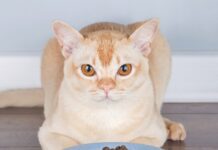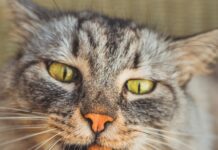Things don’t always turn out the way you expect. A study that set out to measure how much wildlife domestic cats eat to supplement the food they are given by their owners was unsuccessful due to an unexpectedly high variability in cat food ingredients. This accidental discovery suggests that some cat food manufacturers regularly change ingredient composition, even within the same flavors.
Feral cats are responsible for several native wildlife declines, like the Key Largo woodrat, but the impact of pet cats on urban wildlife isn’t well understood. This inspired a collaborative study at North Carolina State University to directly measure how often pet cats eat outside of their food bowls.
A common way to understand the composition of animal diets is to collect samples of fur, nails, or blood from an animal and analyze its carbon and nitrogen isotopes. All organic materials contain isotopes of elements that get locked into body tissues, following the basic principle that you are what you eat.
For this study, researchers collected isotopes from things a cat might eat, including different brands and flavors of cat foods. They predicted cats that only ate from their food bowls would have an identical isotopic match to the food, while a cat supplementing its diet with wild prey would have variances. As it turns out, that is not the case.
The carbon and nitrogen isotopes in cat foods varied widely, even between foods that were the same flavor and from the same brand. The only clear relationship found was that the least expensive cat foods had higher carbon values, indicating a strong presence of corn product in inexpensive cat food.
McDonald, BW, et al. High variability
A Word to Our Readers: CatWatch Mailing List Policy
Like many other publishers, we make portions of our customer list available to carefully screened companies that offer products and services we believe you may enjoy. Indeed, in all likelihood, we were able to first reach you only because another company graciously permitted us access to its customer list. If, when we make our list available, you do not wish to receive these offers and/or information, please let us know by contacting us at: CatWatch Opt-Out Program, PO Box 5656, Norwalk, CT 06856-5656. Please include your mailing label.




